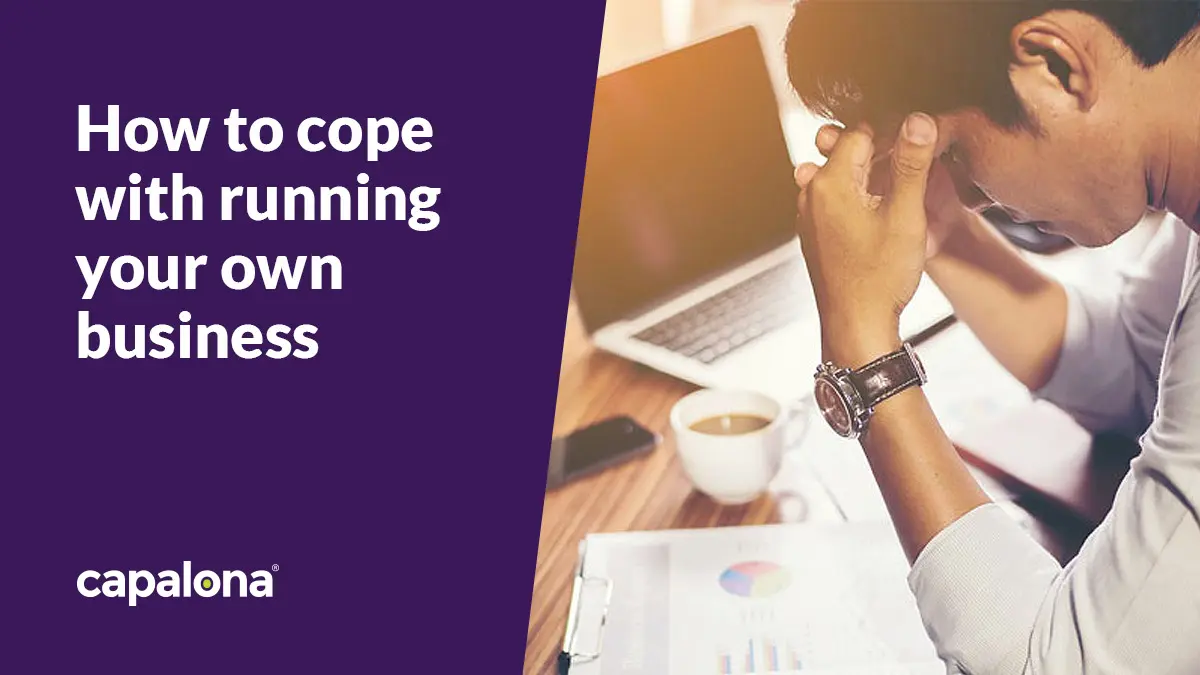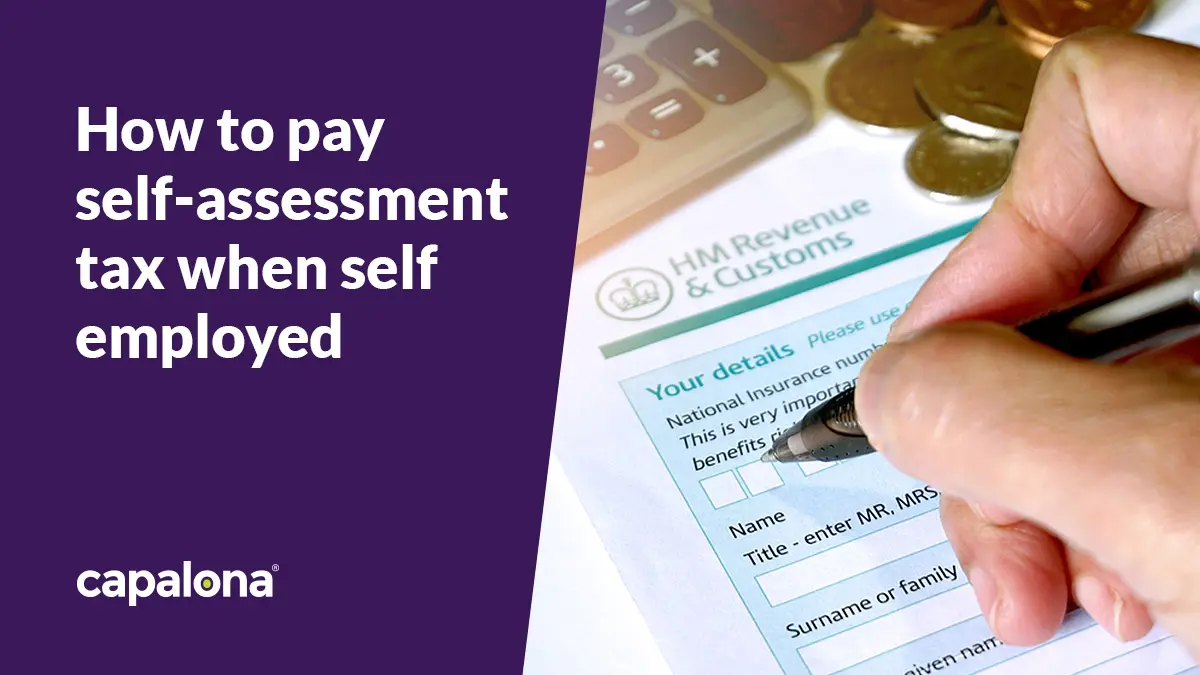If you’d rather work for yourself and set your own work schedule, self-employment can be a fulfilling way to build a career.
You might have considered starting a business for a while, but things got in the way. Whether it’s a lack of confidence, worrying about financial risk or simply not understanding what’s required of self-employed people. It seems you’re not alone; 39% of budding entrepreneurs didn’t know how to start. This blog shares all the information you need to set up your business and become your own boss.
Is self-employment right for you?
Self-employment suits some people more than others. To determine whether you’ll enjoy going self-employed, consider the following:
1. Do your business idea and skill set align?
If you have a great business idea, but it’s in a completely different field where you have limited experience, should you take time to upskill yourself before taking the plunge into self-employment?
It can be tempting to pack in your job and jump straight into your business idea, and if there’s a market and you have money backing you, it’s possible to start immediately. Just pause and consider whether running your own business is something you can do alongside your existing employment to minimise financial risk while you build up your new business.
2. Weigh up the pros and cons of self-employment
Taking the decision to go self-employed should never be an impulsive one. You should balance out the pros and cons; these look different to everyone, but here are some benefits of going self-employed and some drawbacks.
Pros of self-employment:
- Flexibility
- Better work-life balance
- Uncapped income potential
- Doing something you love every day
- Being your own boss
Cons of self-employment:
- Loneliness
- Unconventional working hours
- Financial risk
- Unstable income
- No sick pay or set annual leave
- Business owners must wear many hats leading to burnout
3. Do you have the financial resources to start a new business?
The cost of starting a business varies depending on the type of business you start, but to give you a general idea, data suggests the average cost of starting a business in the UK is £22,756. Remember, startup costs can be much lower if you launch an internet service-based business, i.e. business consulting, and much higher if you’re opening a brick-and-mortar business, i.e. a restaurant, retail shop or hairdressers.
Before starting your business, work out preliminary costs, consider website build, purchasing stock, hiring staff, payroll costs, and business insurance. If you go into your business cost-blind, you won’t be able to forecast cash flow and control business finances in general. If you need financial support, we can help you access flexible startup loans or small business loans.
Legal things to consider when starting a business
Regardless of the type of business you’re starting, you need to notify HMRC that you exist. First, you’ll need to choose a business structure:
- Sole trader. A sole trader has fewer self-employed tax requirements than a limited company. This is because they’re operating as a business rather than becoming a separate legal entity. You have more privacy over business finances as you do not have to disclose anything on Companies House. Setting up as a sole trader is quick and free of charge.
- Partnership. You can register as a partnership or a limited liability partnership. One is incorporated, and the other is not. As a partnership, you share the business, but you still don’t have to register with Companies House unless you’re a limited liability partnership.
- Limited company. A limited company can give you a more professional brand image, and some customers will prefer to do business with limited companies. That being said, tax obligations are different than with sole traders. Once you’ve registered your limited company, you’ll receive the incorporation certificate in a few days, along with your company number.
Registering for a self-assessment tax return is the next legal step for your new business. Self-assessment is straightforward to register for, and HMRC will guide you through the process. Always take the time to understand the self-employed tax laws applicable to you.
Tax requirements for sole traders include:
- Registering for self-assessment
- Submitting an annual tax return
- Paying income tax
- Paying National Insurance
- Registering for VAT (if you earn over £85,000 per year)
Tax requirements for limited companies include:
- Registering for Corporation Tax within three months of starting trading
- Submitting company tax return
- Paying corporation tax
- Directors must register for self-assessment
- Registering for VAT (if earning over £85,000 per year)
Which company structure you choose might be guided by professional accountancy advice. You might want to reduce personal liability by separating yourself from your business, or perhaps your long-term goals include getting investors on board — in these instances, a limited structure might better suit you.

Business basics to get in place
Here are a few important things to set up before you get your business up and running.
Setting up a business bank account
If you’re a sole trader, it’s not a legal requirement to set up a separate business bank account, but if you’re a limited company, you’ll need to create one. Even if you’re a sole trader, you should consider creating a business bank account because it makes you look more professional to customers, but it also keeps personal and business finances separate, making completing your tax return much more straightforward.
Learn how to invoice
Invoicing plays a big part in running your own business, not only in keeping accurate records, but if you’re in a business-facing company, i.e. business consultant or recruiter, your clients will expect you to create a professional invoice. Your invoice should follow a familiar format and include important details such as your and your client’s company details, an itemised list of products or services provided, the total, and payment terms.
Keeping financial records
Your self-employed tax return must be accurate to ensure you’re paying the right amount of income tax. You can keep records in a spreadsheet and send out invoices created in a Word document, or you can sign up for invoicing software such as QuickBooks or Freshbooks to keep all your income records in one place. Using software means you can quickly view outstanding invoices, track and analyse income by month, quarter and year, and accurately fill in your tax return, which makes the entire process quick and painless.
Self-employment insurance
The type of business insurance you need will depend on the type of business you’re starting. For example:
Professional indemnity insurance
If you make a mistake or a client or customer thinks you haven’t delivered what you promised, professional indemnity insurance can help you in these situations, even if you’re not at fault. This insurance covers your legal defence and, if it comes to it, pays compensation.
Public liability insurance
If someone claims your business damages their property or the business has injured someone, public liability insurance covers you in these instances. This insurance covers the cost of defending you and compensating the claimant.
Cyber insurance
Repairing hardware or restoring data after a cyberattack can be expensive, but costs are covered with cyber insurance. This insurance covers the cost of repairing hardware, defending you against ransomware attacks, covering lost income while your business is offline and more. It gives you the peace of mind you need to run your business.
Employer’s liability insurance
If you employ staff, it’s a legal requirement to have an employer’s liability insurance. This insurance covers any claims and allegations made by staff that your business has resulted in injury or illness. Staff can include everyone from full-time and part-time employees to volunteers and people doing work experience.
Marketing your business
Getting the word out about your new business can be daunting — where should you start? The key to a successful marketing strategy is understanding your audience and their challenges.
Ask yourself, how does your business solve the challenges for its intended audience?
When marketing your business, focus on the benefits to the customer rather than talking about yourself. For example, instead of saying we’re launching a new business consulting service, re-phase your announcement to focus on what the audience will get from it. I.e. they’ll generate qualified leads for their business and make a return on their investment in one month.
Before you start pouring time and effort into marketing your business on every channel, instead, take time to find out where your audience is online. Are they chatting in forums, or are part of Facebook groups, or perhaps they’re active on Instagram?
Once you’ve identified where they hang out, you can craft impactful strategies to educate them on topics surrounding your product or service, ensuring you stay at the forefront of their mind when the time comes for them to consider a product or service like yours.
What expenses can I claim being self-employed?
Being self-employed has its perks - certain running costs can be deducted when you work out your taxable profits. You just need to make sure they’re included in HMRC’s allowable expenses list. Some common self-employed expenses that can be claimed include:
- Office, property and business equipment (computers etc.)
- Fuel, parking and other travel expenses
- Marketing subscriptions (e.g. website costs)
- Financial and legal costs (e.g. insurance costs)
- Business-related training courses
Financial support for your new business
We work with lenders offering startup loans and small business loans to help you grow and thrive. Alternative lender loan requirements are more flexible than traditional lenders, which means the chances of you finding a suitable business loan are higher.
We’ve helped thousands of small and medium businesses reach their business goals; let us help you reach yours, too!
Getting a quote won’t affect your credit score. Get a free quote today.








